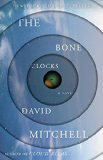Summary | Excerpt | Reviews | Beyond the book | Read-Alikes | Genres & Themes | Author Bio

A Novel
by Scott Alexander HowardScott Alexander Howard's debut novel is set in a lush alternate reality: a series of villages spread across valleys, each twenty years apart. Odile Ozanne, a sixteen-year-old applying for apprenticeships, is asked, if you could leave your valley, where would you go and why? Odile decides she would stay right where she is, without a need to dive into memories twenty years back in Ouest 1, the valley to the west, or see potential future offspring twenty years ahead in Est 1, the valley to the east. Her answer impresses enough to land her a spot in the elite Conseil's prestigious vetting program; if she makes it through, she will join a group of officials who make decisions regarding petitions from mourners to travel east or west.
The Conseil's sole job is to protect the status quo of time, weighing the benefit of providing grieving petitioners a moment of comfort with the risk of interference in the past or future that might change the direction of events for any of the villages, particularly their own. Odile is poised for a brilliant career with them when her friend Edme upends it all. Odile is privy to the secret that Edme will soon die; shaken by this, she quits the Conseil's vetting and joins the only option left to her: the gendarme protecting the border between villages, as the sole female recruit. It is a hard and lonely life. Twenty years later, she regrets her rash actions at sixteen. When she accidentally catches a glimpse of herself twenty years further into the future, she vows to do whatever is necessary to change the course of her life.
The landscape of Howard's novel is predicated on a metaphor of dimensions, using the spatial dimension of geography as a stand-in for time. It's an intellectually pleasing brain-tickle to consider and one that, for me, takes time travel out of the sci-fi dimension and into one of politics, land, and border patrol. The Conseil decides who is physically allowed to leave and enter a different valley to mourn. Despite this, the book is not about geopolitics or grief and grieving, but rather, the impact of monumental decisions on the trajectory of one's life. It is a coming-of-age tale that stretches into adulthood and beyond. Young people and readers who like young adult fiction may particularly enjoy it, as the protagonist is a teenager for the first half of the book and deals with issues many of us associate with that age (first love, future career, schoolyard cliques, and friendships.)
In contrast to Odile's idealism in her youth, she wants badly as an adult to change her future by altering the past. Moral and philosophical questions come up throughout the novel. What is the cost of trying to change the past? Howard offers one potential framework for this question through case studies in the Conseil's program. The Conseil teaches that such changes would be catastrophic to the fabric of society and to you, the present individual, who would be entirely wiped out. Do we, as readers in our reality, believe the same? Are we already bound to a certain set of events? Would you risk an uncertain future for all for one present lifetime of happiness? Does the calculation change if your motives are selfless instead of selfish? These questions about time, being, and social meshwork have led other reviewers to call The Other Valley reminiscent of Ruth Ozeki, as well as Kazuo Ishiguro. Rather than offering answers to the questions beyond the official party line of the Conseil, Howard gives readers a chance to stew over them, leaving the ending open to interpretation. Indeed, the climax has us wondering what Odile has actually done and at what cost.
Howard's novel is atmospheric as well as philosophical. Reading it, I could almost smell the forest separating the valleys and feel the snowfall of Odile's winter patrols. Readers will enjoy it either as a thoughtful book for a rainy day or one light enough for a vacation read.
![]() This review was originally published in The BookBrowse Review in March 2024, and has been updated for the
February 2025 edition.
Click here to go to this issue.
This review was originally published in The BookBrowse Review in March 2024, and has been updated for the
February 2025 edition.
Click here to go to this issue.

If you liked The Other Valley, try these:

by Laila Lalami
Published 2025
READ WITH JENNA BOOK CLUB PICK AS FEATURED ON TODAY ● From Laila Lalami—the Pulitzer Prize and National Book Award finalist and a "maestra of literary fiction" (NPR)—comes a riveting and utterly original novel about one woman's fight for freedom, set in a near future where even dreams are under surveillance.

by David Mitchell
Published 2015
An elegant conjurer of interconnected tales, a genre-bending daredevil, and master prose stylist, David Mitchell's new novel, The Bone Clocks, crackles with invention and wit.
Your guide toexceptional books
BookBrowse seeks out and recommends the best in contemporary fiction and nonfiction—books that not only engage and entertain but also deepen our understanding of ourselves and the world around us.